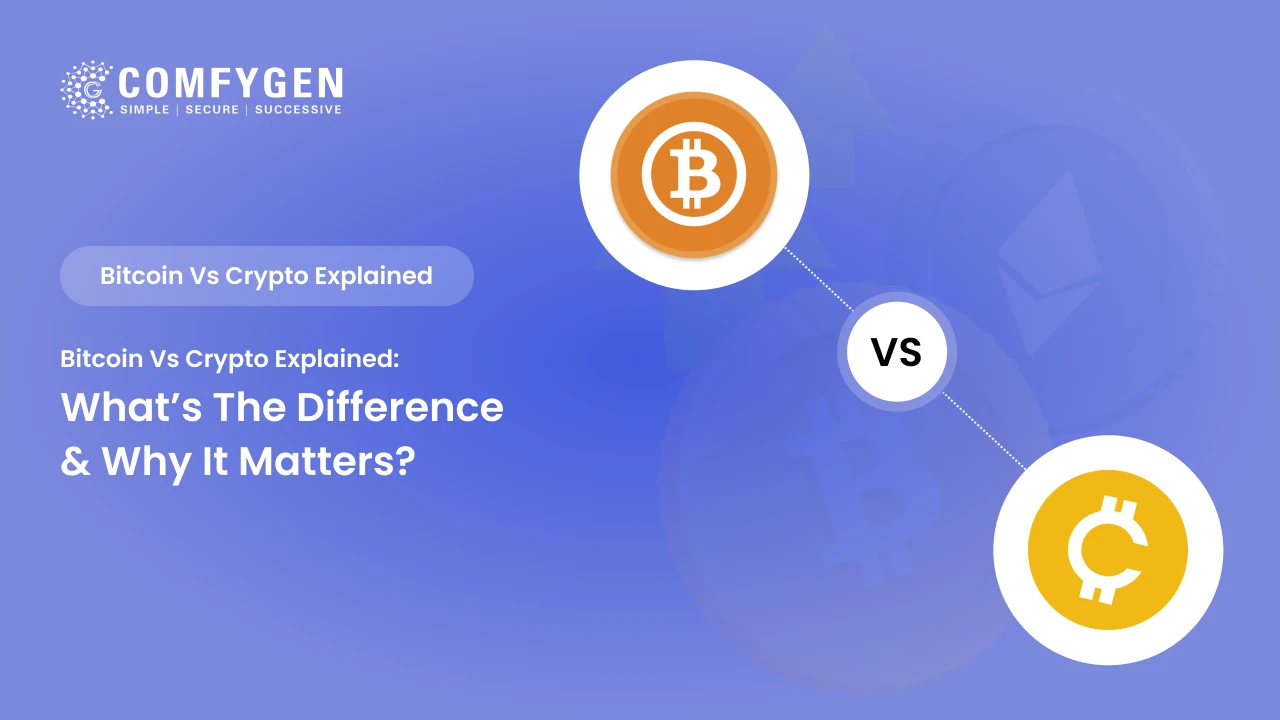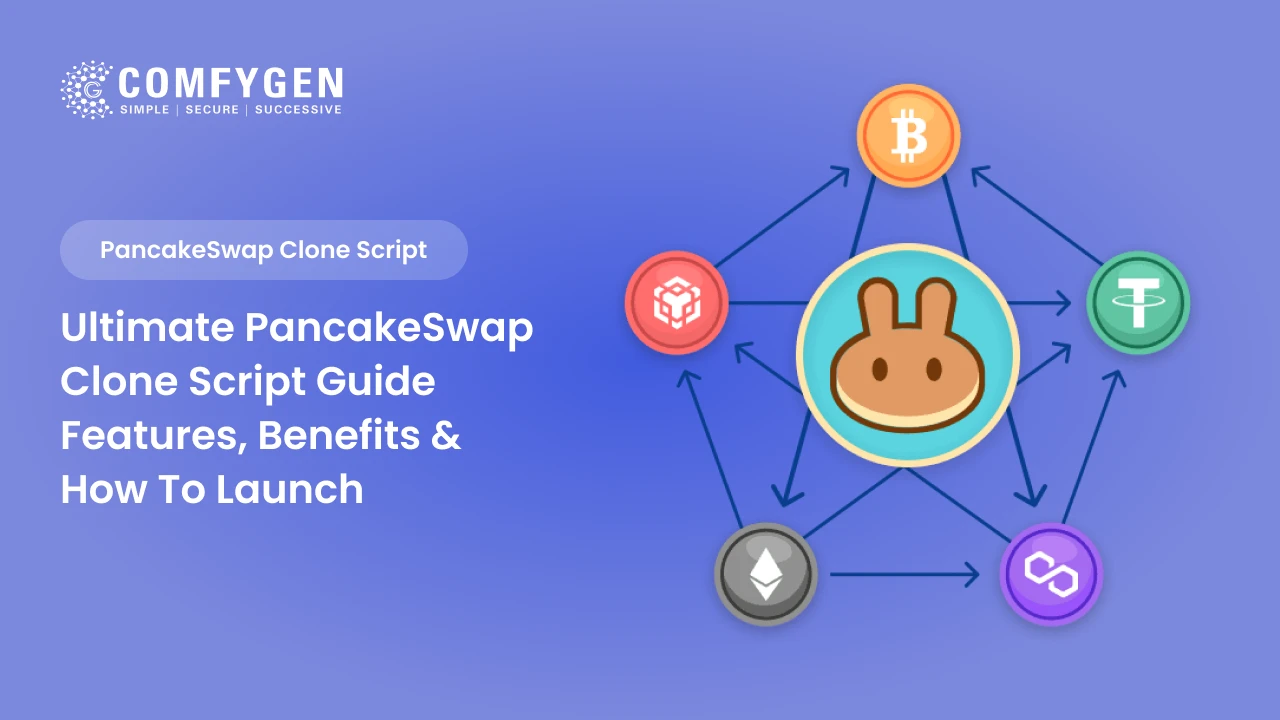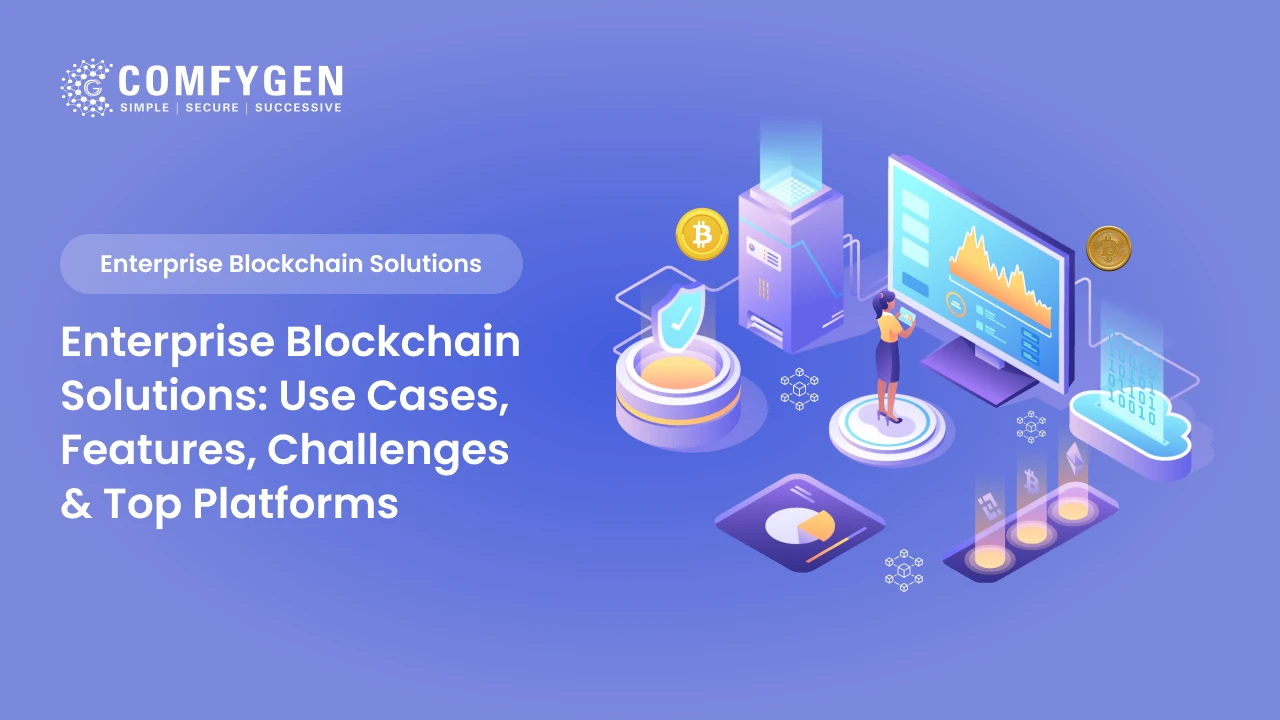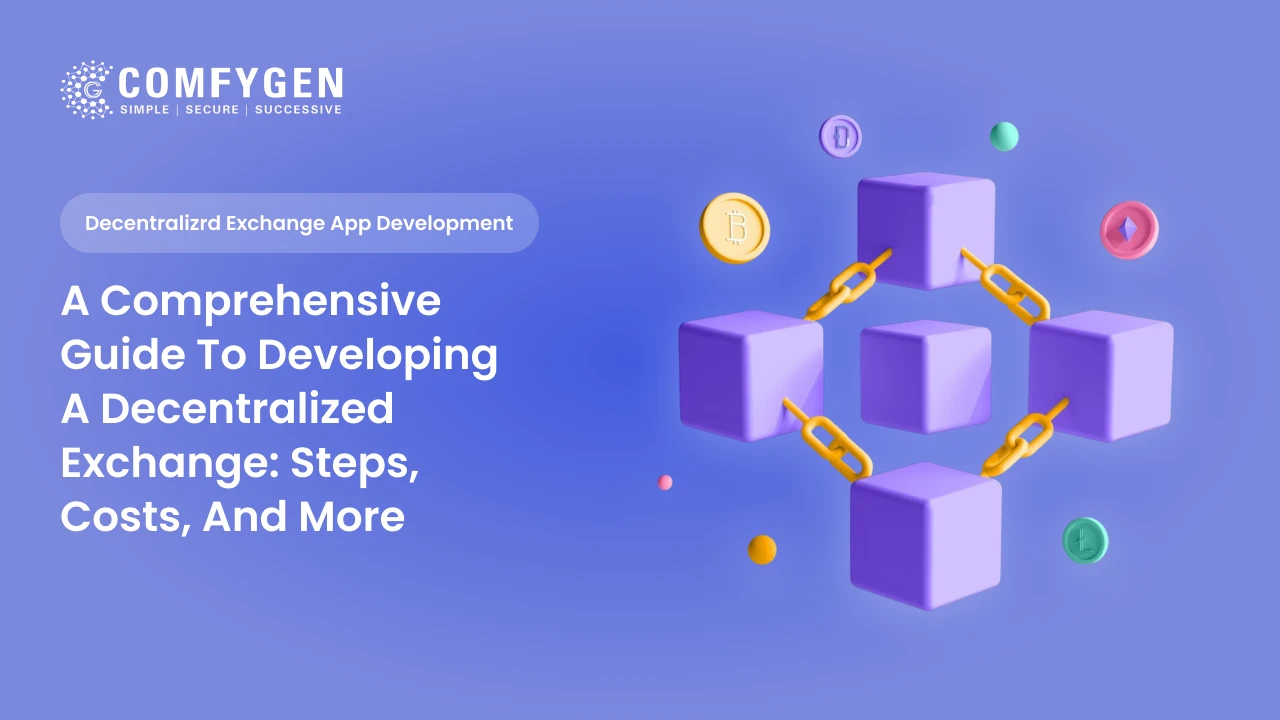Secrets of Success: An Insider’s Take on Effective Blockchain App Development Company

Blockchain has controlled conversations across news outlets, social media platforms, and office discussions in recent years that captivate audiences worldwide. Explore the complexities of crafting cutting-edge blockchain app development solutions that redefine industry standards. This journey navigates the blend of technological expertise and strategic vision, underlining the importance of innovative thinking in blockchain app development. Discover the secrets to establishing a thriving blockchain app development company by seamlessly integrating blockchain API potential with meticulous planning. From cultivating a dynamic work culture to staying ahead of emerging trends, this insider’s perspective encapsulates the essential elements driving success. Elevate your understanding of blockchain app development services, unveiling the layers that elevate a blockchain development company into a trailblazer in this ever-evolving landscape.
Introduction to Blockchain Technology
Blockchain technology is an advanced database mechanism who allow transparent information to share within a business network. It qualifies the quick and secure transfer of crypto assets, reducing fraud, financing of terrorism and money laundering. This decentralized, distributed ledger system securely records transactions across a computer network with every block containing a cryptographic hash of the previous block that creates an immutable record. Blockchain technology is transforming industries through applications like smart contracts beyond its original use case in cryptocurrencies like Bitcoin, digital identity verification, supply chain management and decentralized finance development. This increases security, transparency and efficiency while reducing reliance on intermediaries.
Importance of Blockchain App Development Companies
Blockchain app development companies are important for businesses entering the app development field due to blockchain’s capacity to streamline processes, cut costs and support data integrity which fundamentally reshapes traditional business operations. These blockchain app development company hold a central role in providing innovation across various sectors by using blockchain’s capabilities. Specializing in decentralized application (DApp) development, they offer unparalleled security, transparency and immutability, encourage trust with supporters and facilitate secure transactions without intermediaries. Their expertise in blockchain development not only streamlines processes but also fuels digital transformation across finance, supply chain, healthcare and beyond moving businesses into a new age of efficiency and opportunity.
Want to Develop your Blockchain App
Market Overview of Blockchain Development
Blockchain market value was $12.3 billion in 2023. Now, market value is projected to experience a strong combination annual growth rate of 57% from 2023 to 2030. Blockchain market growth is increasing acceptance of cryptocurrencies worldwide and using of blockchain technology, particularly in the financial and retail sectors. The evolution of the blockchain development market reflects this trend with businesses across various industries acknowledging the potential advantages of blockchain which including increased security, transparency and efficiency. This identification has led to a rush in demand for blockchain development services, attracting a different array of players from established technology giants to startups and specialized firms.
Development processes have become more accessible, providing businesses of all sizes with the emergence of user-friendly blockchain development platforms and tools. As advancements in blockchain technology continue and interest from sectors like finance, supply chain and healthcare grows. The blockchain development market is the main for sustained expansion in the expected future.
Read More: Blockchain Software Development Guide: All you need to Know
Factors to Consider of a Successful Blockchain App Development Company
- Expertise and Experience
The team should be experienced in blockchain technology which include proficiency in various blockchain app development platforms like Ethereum Blockchain Development, Hyperledger Blockchain Development, and EOS also proficiency in programming languages like Solidity, Go, and C++ is important. - Track Record
Blockchain projects prove track record demonstrates the blockchain app development company’s capability and reliability. Case studies and client testimonials can be powerful measures of ability. - Innovative Solutions
It should be ability to provide innovative blockchain solutions that mark real-world problems and add value to businesses or industries. - Security Focus
Importance of security best practices to make sure the integrity and confidentiality of data, smart contracts and transactions within the blockchain ecosystem. - Scalability
Capable of designing and developing blockchain applications that can scale efficiently to handle increasing user loads and transaction volumes without compromising performance. - Interoperability
Understanding of interoperability standards and protocols to facilitate perfect integration with existing systems and other blockchain networks. - Regulatory Compliance
Regulatory awareness requirements and compliance standards relevant to the industries the company serves like GDPR, and KYC/AML regulations to make sure legal conformity. - User Experience (UX)
Focus on providing an attractive and user-friendly experience for both developer’s tools and APIs and end-users interacting with the blockchain application.
Read Also: A Comprehensive Guide on Blockchain Development Process and Tools
- Community Engagement
Active involvement in the blockchain community through contributions to open-source projects, participation in blockchain development industry events and engagement with relevant forums and discussions. - Continuous Learning and Adaptation
Commitment to staying updated with the latest advancements in blockchain technology which includes emerging trends, protocols and best practices. - Partnerships and Collaborations
Build strategic partnerships with other development companies, blockchain platforms, industry society and academic institutions to use collaboration and access additional resources. - Transparent Communication
Start transparent communication channels with clients to understand their requirements, provide regular project updates and address any concerns on time. - Flexible Engagement Models
It should provide flexible engagement models customized to the different clients needs whether it’s fixed-price projects time and material contracts or dedicated development teams. - Strong Support and Maintenance
A successful blockchain development company in India should provide ongoing support and maintenance services to make sure the smooth operation of blockchain applications post-deployment which includes bug fixes, performance optimizations and upgrades. - Business Sustainability
Develop a sustainable business model that balances revenue generation with long-term growth objectives, financial stability and social considerations.
Ready To Hire Start your dream project? We Have A TEAM To Get You There.
Challenges and Opportunities in Blockchain App Development
Scalability
Scalability remains a strong challenge in blockchain app development. The number of users and transactions increases, some blockchain networks face limitations in processing speed and capacity. Overcoming scalability challenges requires innovative solutions like layer-two scaling solutions and sharding.
Interoperability
The interoperability of different blockchain networks is an important consideration. Currently, many blockchains operate in silos limiting the seamless exchange of assets and data. Bridging this gap requires the blockchain development of interoperability protocols and standards to encourage a more connected and collaborative blockchain ecosystem.
Regulatory Compliance
Blockchain app development operates in a fastly evolving regulatory landscape. Accepting legal and regulatory frameworks is important for mainstream adoption. Striking a balance between the decentralized nature of blockchain and regulatory conformity poses a challenge but it also presents an opportunity for collaboration between the blockchain software development company and regulatory bodies.
Security Concerns
While blockchain is known for its strong security features weaknesses still exist. Especially in the implementation phase. Smart contract bugs, 51% attacks and private key management are areas that demand constant attention. Addressing security concerns requires hard testing, regular audits and the adoption of best practices in blockchain app development.
Tokenization and New Business Models
Tokenization the process of creating digital assets on the blockchain development, opens up new paths for innovation and business models. However, navigating the regulatory landscape and make sure the validity of tokenized assets present challenges. Hire blockchain developers have the opportunity to pioneer new financial ecosystems and redefine traditional business models.
Get Free Demo For Blockchain Development
Implementing Security Measures in Blockchain Apps
Implement strong security measures is important when developing blockchain applications to protect against various threats and weaknesses. Here are some key security measures to consider:
Secure Development Practices
Accept to secure coding practices and guidelines throughout the development lifecycle. which includes input validation, proper error handling, secure configuration and acceptance to coding standards like OWASP Top Ten.
Authentication and Access Control
Strong authentication mechanisms like multi-factor authentication to verify the identity of users accessing the blockchain application. Use role-based access control to sensitive functions and data based on users roles and permissions.
Data Encryption
Encrypt sensitive data both at rest and in movement using strong encryption algorithms to stop unauthorized access or interfere. Which includes encrypting data stored on the blockchain as well as data communication between nodes or between the application and users.
Secure Smart Contracts
Examine and thoroughly test smart contracts to identify and mitigate potential weaknesses like repetition integer overflow and unauthorized access. Follow the best practices for smart contract development and consider using formal verification tools to make sure authenticity and security.
Secure Node Configuration
Make sure that blockchain nodes are securely configured to stop unauthorized access and attacks like denial-of-service attacks, spam attacks and node manipulation. Regularly update node software and apply security marks to reduce known weaknesses.
Consensus Mechanism Security
Choose a secure and reliable consensus mechanism like proof of work blockchain development and proof of stake that aligns with the specific requirements and threat model of the blockchain application. Implement mechanisms to defend against common attacks like 51% attacks or Sybil attacks.
Immutable Audit Trail
Using the blockchain’s fixed nature to create an audit trail of transactions and data changes that provide transparency and accountability. Implement mechanisms for tracking and verifying the integrity of data stored on the blockchain.
Secure API Integration
If the blockchain application interacts with external systems or services via APIs make sure that API endpoints are secured using authentication, authorization and encryption mechanisms. Implement rate limiting and input validation to intercept API misuse and injection attacks.
Regular Security Audits and Penetration Testing
Regular security audits and penetration testing to identify security weaknesses before they can be utilized by attackers. Engage third-party security firms or independent explorers with expertise in blockchain security to perform full assessments.
Incident Response Plan
Incident response plan outlining method for detecting, responding to and recovering from security incidents or breaches. Start communication channels and advance paths for reporting and directing security incidents in a timely manner.
Integrating Smart Contracts for Efficiency
Integrating smart contract development into blockchain applications can notably increase efficiency by automating and efficient various processes. Here are some ways to effectively integrate smart contracts for efficiency:
Automated Transactions
Smart contracts can automate the effecting of predefined transactions once definite conditions are met. For example, in supply chain management, smart contracts can automatically activate payment to suppliers once goods are customized and verified.
Decentralized Governance
Decentralized governance qualifies transparent decision-making processes without the need for intermediators. This can perfect voting, fund allocation and other governance tasks within decentralized autonomous organizations or token-based ecosystems.
Immutable Record Keeping
Smart contracts maintain an immutable record of transactions and data changes on the blockchain that provide transparency and analysis. This removes the need for manual record-keeping processes and reduces the risk of data control or fraud.
Conditional Escrow Services
Smart contracts can provide as escrow agents that hold funds or assets until predefined conditions are met. This is particularly useful in peer-to-peer transactions, crowdfunding efforts or real estate transactions where parties can control with confidence knowing that funds will be released automatically upon fulfillment of conditions.
Tokenization of Assets
Ownership can be represented by real-world asset tokenization on blockchain development like real estate, securities and products through smart contracts. This allows fractional ownership, instant transferability and automated compliance with regulatory requirements that efficient the trading and management of assets.
Programmable Compliance
Smart contracts can apply predefined compliance rules and regulations encoded into their logic. This reduces the need for manual oversight and make sure acceptance to regulatory requirements like KYC/AML checks, accreditation verification or investor capability basis.
Interoperability with External Systems
Smart contracts can interact with external systems and APIs through oracles that authorize perfect integration with off-chain data sources, payment gateways and other blockchain networks. This interoperability increases the functionality and utility of smart contracts by expanding their scope of operation beyond the blockchain.
Conditional Insurance and Derivatives
Smart contracts can facilitate the development and effecting of conditional insurance policies and derivative contracts. This allows automated claims processing, risk surround and settlement of financial contracts based on predefined triggers or events that reduce executive above and equivalent risk.
Dynamic Pricing and Auctions
Smart contracts can implement dynamic pricing mechanisms and auctions based on predefined algorithms or market conditions. This allow efficient price discovery, real-time bidding and automatic settlement of transactions that increase market liquidity and efficiency.
Self-Executing Agreements
Smart contracts can encrypt the terms and conditions of agreements between parties that execute them automatically once conditions are met. This removes the need for inter mediator that reduces transaction costs and accelerates the discussion and execution of agreements.
Read More: Smart Contracts and Blockchain: A Powerful Combination for Business Applications
Keeping Up with Blockchain Trends
Stay updated with blockchain trends is compulsory in this fast-paced industry. With new advancements and developments happening regularly, professionals need to stay informed to remain competitive. By attending conferences and engaging with online communities by following industry publications, individuals can stay ahead of the inflect and capitalize on appear opportunities.
The Rise of NFTs
Non-Fungible Tokens have rush in popularity that revolutionizing digital ownership across various industries and capturing the imaginations of creators, collectors and investors worldwide. NFTs have transformed the way we recognize and interact with digital assets from digital art to virtual real estate that providing unique opportunities to monetize creations and unlock value in the digital economy. This unparalleled growth in NFT token development adoption signifies a paradigm shift in how we value and trade digital goods that assist in a new age of innovation and creativity in the digital art and collectibles market.
Tokenization of Assets
Asset tokenization facilitated by blockchain technology is fundamentally reshaping traditional finance and asset ownership by converting tangible and intangible assets into digital tokens. This creative process allows fractional ownership, intensifies liquidity and transparent traceability that fundamentally change the landscape of investment and asset management. Through asset tokenization previously illiquid assets like real estate, stocks and products become accessible to investors big range democratizing access to investment opportunities and simplifying asset management processes. This transformative approach not only increases market efficiency but also encourages greater transparency and trust in financial transactions cover the way for a more inclusive and accessible global economy.
AR & VR
The combination of AR and VR technologies with blockchain is transforming digital experiences in gaming, entertainment and beyond. AR increases real-world environments by covering digital elements through smartphone cameras while VR immerses users in fully artificial environments. These technologies allow secure ownership and conformity of virtual assets by integrating blockchain opening up new possibilities for creative digital interactions and commerce. This partnership between AR, VR and blockchain is providing innovation and reshaping how we recognize and engage with digital content and cover the way for a more interconnected and interactive digital future.
Metaverse
The concept of the Metaverse a virtual shared space integrating virtual reality, augmented reality, and the internet has gained substantial traction due to advancements in blockchain technology. Decentralized platforms and virtual worlds powered by blockchain are place the groundwork for creative social experiences, digital economies and cross-platform conformity within the Metaverse development. Today, companies utilize the term “metaverse” to surround a variety of increased online environments that cross from online video games like Fortnite to virtual workplaces like Microsoft Mesh or Meta’s Horizon Workrooms, as well as virtual dressing rooms and operating rooms. This expansive definition reflects the diverse applications and potential of the Metaverse that shaping the future of digital interaction and collaboration across industries.
Healthcare
Blockchain technology is transforming the healthcare industry by improving data security, interoperability and patient privacy. With blockchain, healthcare development providers can securely store and share patient records efficient medical billing processes and track the source of pharmaceuticals and medical devices increasing transparency and trust in the healthcare ecosystem. Healthcare is the improvement of health prevention, diagnosis, treatment, improvement or restoration of disease, illness, injury and other physical and mental disability in people.
AI and ML
Artificial Intelligence (AI) and Machine Learning (ML) are converging with blockchain technology to provide creativity and efficiency across diverse applications. While ML is a subset of AI with a focused scope, both AI and ML are playing important roles in increasing scalability, security and automation within blockchain ecosystems. Smart contracts authorized by AI capabilities can execute intricate transactions autonomously while ML algorithms analyze blockchain data to identify patterns that mitigate risks and efficient business operations. This integration underscores the collaboration between AI, ML and blockchain that cover the way for transformative advancements in various sectors from finance to supply chain management.
Also Read: A Comprehensive Guide to The Integration of AI and Blockchain
Blockchain 4.0
Blockchain 4.0 marks a notable advancement in blockchain technology that focusing on providing a business-friendly environment for developing and deploying applications. This new generation of blockchain aims to fully commercialize the technology by direct key challenges like interoperability, scalability and sustainability. Interoperability protocols and layer 2 solutions with the development of new consensus mechanisms. Blockchain 4.0 unlocks new possibilities for decentralized application development and ecosystems. Also, it enables companies with creative concepts but limited blockchain expertise to easily construct, deploy and operate enterprise Decentralized Application development without requiring extensive blockchain development skills. Thus encouraging large adoption and creation in the blockchain space.
How Much Time and Cost to Develop a Blockchain App Development?
Blockchain app development costs extend based on complexity. Simple app costs start $15,000 to $50,000 with basic functionality and UX/UI design. Complex apps cost between $60,000 and $150,000 over a 6 to 8-month period. Highly complex apps cost start $150,000 to $300,000 with a development timeline marked 9 months. Industry experts expect notable investment growth in blockchain leading to a market value of $394.60 billion by 2028. The chosen blockchain development platform, developer expertise and project complexity with typical blockchain development costs ranging from $50,000 to $85,000 affect factors cost.
Hire The Top Blockchain Developers For Your Project!
How to Hire The Best Blockchain App Development Company in India?
To hire the best blockchain app development company in India, thoroughly asses candidates based on their expertise, track record and alignment with your project requirements. Choose blockchain app development companies with a proven track record of successful blockchain projects. An experienced blockchain developer team should be proficient in relevant blockchain app development platforms, programming languages and a strong commitment to security and conformity standards. Also, assess their experience in your industry or domain. Their ability to understand your specific needs and their communication and project management capabilities. Conduct thorough interviews, review case studies and client testimonials. Consider factors like pricing, scalability and post-development support to make an informed decision and make sure the success of your blockchain project.
Also Read: Blockchain Development Costs & Features – A Complete Guide
Conclusion
In navigating the complex effective blockchain app development field success lies in a meticulous combine of strategic foresight, technical skills and fixed dedication. Aspiring developers starting on this journey must attend to the insights shared by industry insiders that recognizing the paramount importance of thorough research, careful evaluation of potential partners and a steadfast commitment to excellence. By using the secrets of success obtain from seasoned professionals which including the meticulous vetting of blockchain app development agencies acceptance to industry best practices and a continuous activity of innovation. Developers can navigate the intricacies of this dynamic landscape with confidence. Ultimately, It is the combination of passion, expertise and a constant pursuit of excellence that cover the path to success in the ever-evolving world of blockchain app development.
Feel Free To Contact Us!
- Call/WhatsApp: +91 9587867258
- Skype: @Comfygen
- Email: [email protected]

Mr. Saddam Husen, (CTO)
Mr. Saddam Husen, CTO at Comfygen, is a renowned Blockchain expert and IT consultant with extensive experience in blockchain development, crypto wallets, DeFi, ICOs, and smart contracts. Passionate about digital transformation, he helps businesses harness blockchain technology’s potential, driving innovation and enhancing IT infrastructure for global success.
Based on Interest
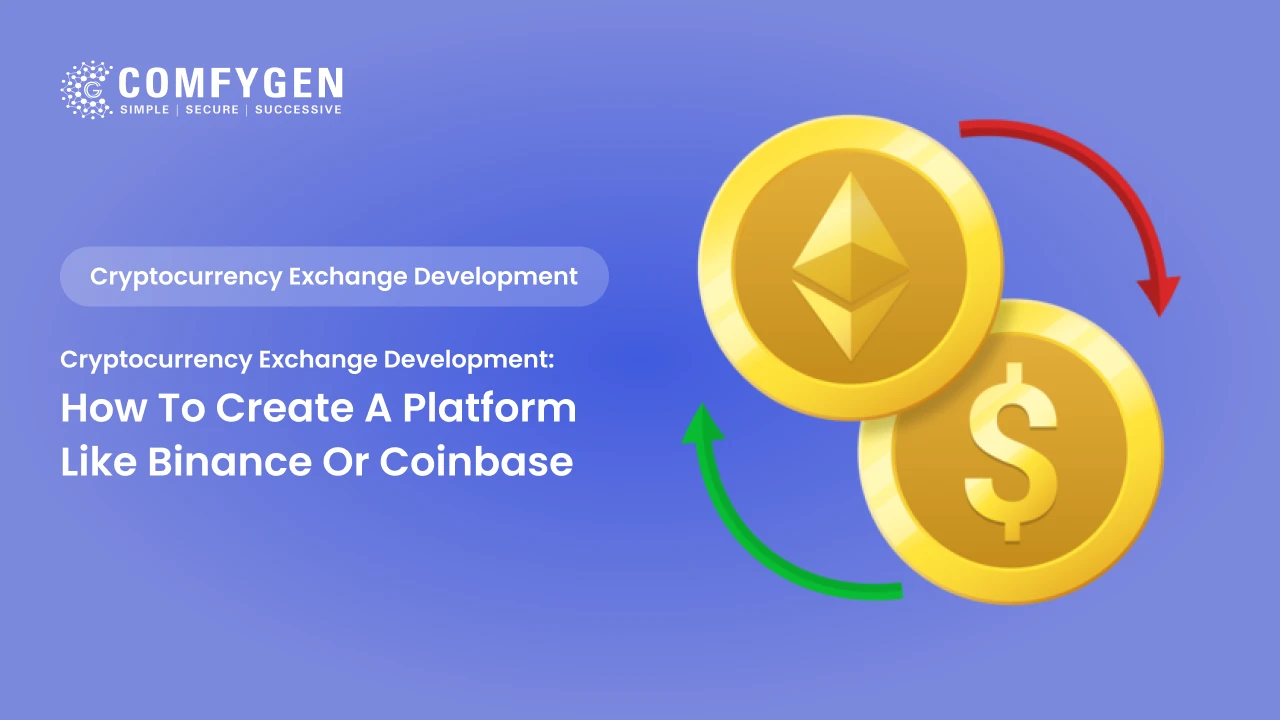
Cryptocurrency Exchange Development: How to Create a Platform Like Binance or Coinbase
The rise of cryptocurrency has revolutionized the financial world, creating new avenues for investment, trading, and technology-driven finance. Among the major…
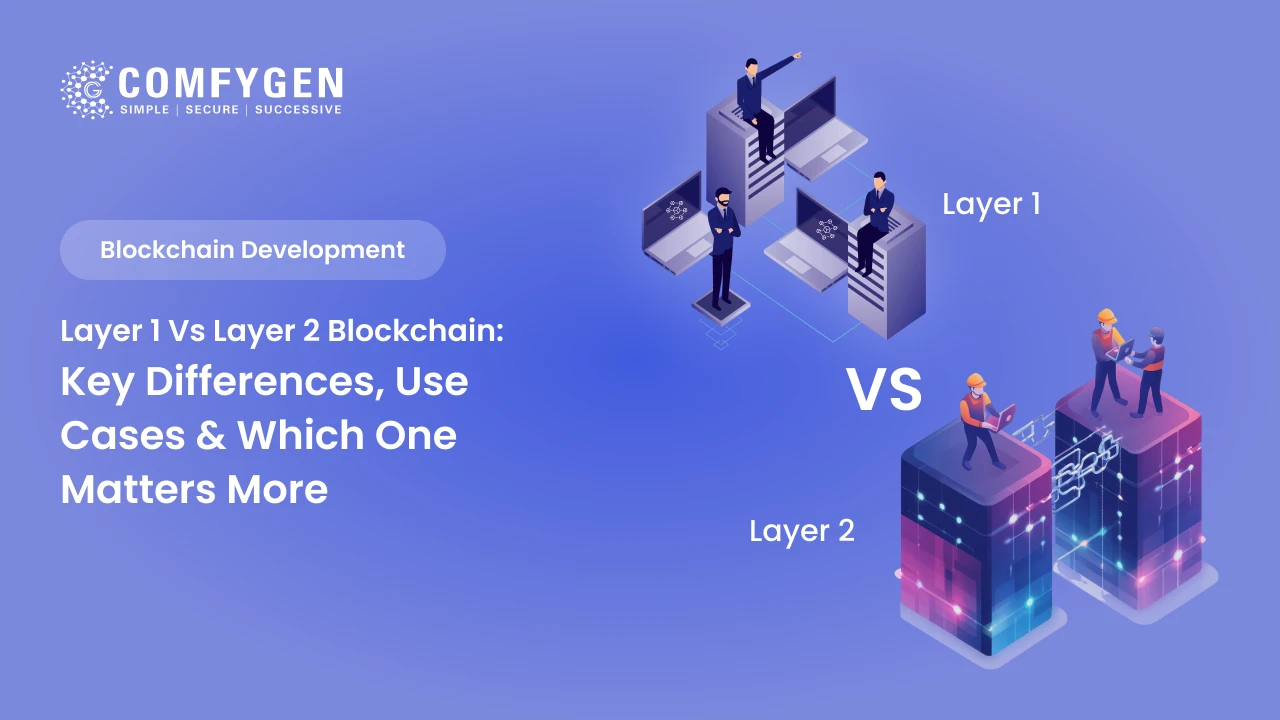
Layer 1 vs Layer 2 Blockchain: Key Differences, Use Cases & Which One Matters More in 2025
Introduction Blockchain technology, once the exclusive domain of cryptocurrencies, has now evolved into a robust tool for various industries, including finance, healthcare,…




